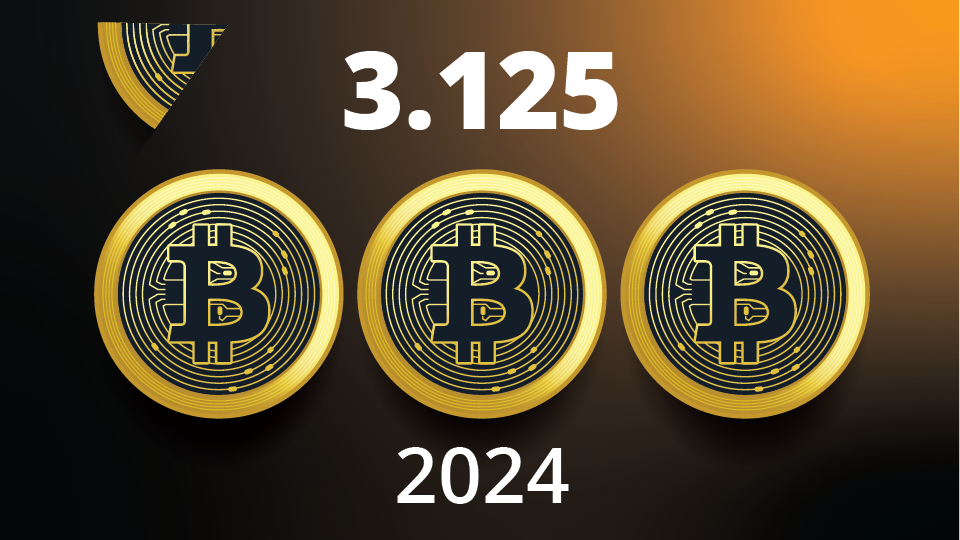Find the Right NFT for You
May 06, 2022
Read Time 6 MIN
Please note that VanEck may have a position(s) in the digital asset(s) described below.
A non-fungible token (NFT) is a digital asset that represents real-world objects like art, music, in-game items and videos. Each NFT is one of a kind and references a unique entry on a blockchain. The NFT ecosystem is expansive and continues to evolve. With so much change and so many projects to choose from, it can be hard to know where to start. Some projects like Moonbirds generate large sums of money after only a few weeks, while at the same time, hackers continue to cause trouble in the space (most recently, hackers looted Bored Apes). In short, NFTs are the wildest part of this wild west that is cryptocurrency. While many of us attempt to find the next Moonbird-like NFT in terms of upside, we must also be cautious about which projects we engage with, where we connect our wallets and ultimately invest our hard-earned assets.
To educate yourself about commonly used tactics by scam artists in the NFT space, be sure to check out my recent blog on crypto scams. To help you get started in finding the right NFT for you, we’ll cover a portion of my own due diligence process for discovering which projects are legit, which could have serious returns and which are the projects you should avoid.
Start Your NFT Due Diligence
Many of my best ideas come from collaborating with others. These could be fellow enthusiasts who have invested in a similar project or ecosystem. For example, #FLUFfollowFLUF and #BEARfollowBEAR are hashtags that allow Twitter users who invest in the same project to follow each other’s tweets. When your connections have ideas they find interesting, those tend to be the first projects I’ll research. They’re not always great, but it’s a start.
Are the Best NFT Ideas on Twitter?
Not always. I also generate ideas from friends and connections, placing particular emphasis on the people who apply the same stringent investment criteria as myself. But I do not simply click on or join any random project that is promoted by Twitter. “Promoted” simply means the project paid for advertising, an indication that their growth is not organic.
Is the NFT Legit, or Is It a “Rug Pull”?
First, let’s define a rug pull.
“A rug pull is a type of crypto scam that occurs when a team pumps their project’s token before disappearing with the funds, leaving their investors with a valueless asset.” – Coin Telegraph
To avoid a rug pull, here are a few things to look for:
- The website is sparse and full of errors. Recently, a friend asked me if a particular project may be a scam and if I could investigate for him. As a first step I always check the website, and in this case the home page had significant grammatical errors that even the famed Prince of Nigeria would not have missed. Now, as those who edit my content are aware, I make plenty of grammatical mistakes, so that alone doesn’t mean much. Nonetheless, grammatical errors on the project’s website are an initial red flag.
- They have a limited or inconsistent social presence. Just because a team is verified by Twitter doesn’t mean I’m comfortable with who a founder or team member is. A real person should have a social presence and digital history that includes a Twitter account and other social media accounts like LinkedIn. Were they involved in other projects? How did they do? What is their reputation? Bottom-line, do your best to find out who the person controlling the project is. Remember, you may be giving them money.
- They claim to be backed by a big name. Like any good scam, a project may try to tie themselves to a big brand or trusted name. It’s important to verify this by researching said trusted brand to see if there are any ties.
- They have a massive number of followers and an overly positive Discord chat. Discord is a communication and digital distribution app used by many NFT projects. This is one of the best places to figure out whether a project is legit. Here are a few things to look for:
- They have a large number of followers. It’s not always a bad thing, but in general most projects struggle to genuinely attract large audiences unless the audience is made of bots or they pulled in an audience from Twitter because of a big name or company involved with the project.
- The general chat is always positive. Do they ban people asking objective questions? Do they respond to them? For some projects I purposely ask constructive, challenging (but fair) questions in the general chat or on Twitter to learn more about the project while also gauging their reactions. Most recently a moderator kept pointing me to the same announcement channel, stating that all of my questions would be answered there. They weren’t and this re-direct from the mods is a sure sign that things aren’t what they seem.
- Most “pump and dump” projects have a “promotion and praise” model for getting whitelisted. “Whitelisted” means that you are eligible to mint the NFT (the process of an NFT being published to a blockchain and you purchasing said NFT). In order to get on this whitelist, you must create artwork supporting the project, participate in quizzes or generally be a very positive person in terms of speaking on the project. However, if the channel moderators refuse to answer any questions related to the project in the main chat, and ban or remove anyone spreading FUD (fear, uncertainty and doubt), it’s a red flag.
This is where bots often shine. If you follow chats closely, there will always be community members randomly praising the team or the project and not always making sense. These are a major warning sign. By the way, it doesn’t mean that you can’t make money with these projects, but it is important to determine if the community is really behind the project or simply trying to get that whitelist spot to sell on the secondary market for a quick profit.
What Are Some Qualities that the Best Projects Have?
Transparency. My favorite quality is a project that is open and transparent about their strengths and weakness. I recently interviewed a start-up NFT project and they admitted to being short staffed and needing more developers. In addition, what they knew about the status of the project was known by the community. It’s a refreshing take from project founders who are transparent about their motives and vulnerabilities.
Follow the “smart money”. Many projects have the backing of popular venture capital and other investment firms. While the support of these firms alone should not dictate your potential investment and faith in the project, it can be comforting to know that many have their own due diligence procedures. Aside from institutional-quality investors, you can begin to follow other Individuals who have a strong track record of investing in projects. With good detective work, you can usually find their public wallet address, which you can then follow to see what they own, and when they buy and sell various assets.
Projects that are playing the long game. When scouring projects to potentially follow, I usually prefer projects that have a roadmap that goes well past their first NFT drop. Ideally, the project is building towards a longer-term vision, wants to include community ideas and feedback, and puts the needs and security of their community first. A great example of this would be our very own VanEck Community NFT. It was a free airdrop with future utility, and is built around the idea of creating a digital asset and investor community.
Next steps?
I suggest you continue to follow and consume our NFT project and digital assets content on top projects that are playing their part in building the metaverse. These pieces are educational and may give you some good ideas to act on.
To receive more Digital Assets insights, sign up in our subscription center.
Related Topics
Related Insights
DISCLOSURES
Please note that VanEck may offer investments products that invest in the asset class(es) or industries included herein.
This is not an offer to buy or sell, or a recommendation to buy or sell any of the cryptocurrencies mentioned herein. The information herein represents the opinion of the author(s), but not necessarily those of VanEck, and these opinions may change at any time. Non-VanEck proprietary information contained herein has been obtained from sources believed to be reliable, but not guaranteed. Not intended to be a forecast of future events, a guarantee of future results or investment advice. Historical performance is not indicative of future results. Current data may differ from data quoted. Any graphs shown herein are for illustrative purposes only.
Cryptocurrency is a digital representation of value that functions as a medium of exchange, a unit of account, or a store of value, but it does not have legal tender status. Cryptocurrencies are sometimes exchanged for U.S. dollars or other currencies around the world, but they are not generally backed or supported by any government or central bank. Their value is completely derived by market forces of supply and demand, and they are more volatile than traditional currencies. The value of cryptocurrency may be derived from the continued willingness of market participants to exchange fiat currency for cryptocurrency, which may result in the potential for permanent and total loss of value of a particular cryptocurrency should the market for that cryptocurrency disappear. Cryptocurrencies are not covered by either FDIC or SIPC insurance. Legislative and regulatory changes or actions at the state, federal, or international level may adversely affect the use, transfer, exchange, and value of cryptocurrency.
Investing in cryptocurrencies comes with a number of risks, including volatile market price swings or flash crashes, market manipulation, and cybersecurity risks. In addition, cryptocurrency markets and exchanges are not regulated with the same controls or customer protections available in equity, option, futures, or foreign exchange investing. There is no assurance that a person who accepts a cryptocurrency as payment today will continue to do so in the future.
Investors should conduct extensive research into the legitimacy of each individual cryptocurrency, including its platform, before investing. The features, functions, characteristics, operation, use and other properties of the specific cryptocurrency may be complex, technical, or difficult to understand or evaluate. The cryptocurrency may be vulnerable to attacks on the security, integrity or operation, including attacks using computing power sufficient to overwhelm the normal operation of the cryptocurrency’s blockchain or other underlying technology. Some cryptocurrency transactions will be deemed to be made when recorded on a public ledger, which is not necessarily the date or time that a transaction may have been initiated.
- Investors must have the financial ability, sophistication and willingness to bear the risks of an investment and a potential total loss of their entire investment in cryptocurrency.
- An investment in cryptocurrency is not suitable or desirable for all investors.
- Cryptocurrency has limited operating history or performance.
- Fees and expenses associated with a cryptocurrency investment may be substantial.
There may be risks posed by the lack of regulation for cryptocurrencies and any future regulatory developments could affect the viability and expansion of the use of cryptocurrencies. Investors should conduct extensive research before investing in cryptocurrencies.
Information provided by Van Eck is not intended to be, nor should it be construed as financial, tax or legal advice. It is not a recommendation to buy or sell an interest in cryptocurrencies.
All investing is subject to risk, including the possible loss of the money you invest. As with any investment strategy, there is no guarantee that investment objectives will be met and investors may lose money. Diversification does not ensure a profit or protect against a loss in a declining market. Past performance is no guarantee of future results.
Van Eck Associates Corporation
Related Funds
DISCLOSURES
Please note that VanEck may offer investments products that invest in the asset class(es) or industries included herein.
This is not an offer to buy or sell, or a recommendation to buy or sell any of the cryptocurrencies mentioned herein. The information herein represents the opinion of the author(s), but not necessarily those of VanEck, and these opinions may change at any time. Non-VanEck proprietary information contained herein has been obtained from sources believed to be reliable, but not guaranteed. Not intended to be a forecast of future events, a guarantee of future results or investment advice. Historical performance is not indicative of future results. Current data may differ from data quoted. Any graphs shown herein are for illustrative purposes only.
Cryptocurrency is a digital representation of value that functions as a medium of exchange, a unit of account, or a store of value, but it does not have legal tender status. Cryptocurrencies are sometimes exchanged for U.S. dollars or other currencies around the world, but they are not generally backed or supported by any government or central bank. Their value is completely derived by market forces of supply and demand, and they are more volatile than traditional currencies. The value of cryptocurrency may be derived from the continued willingness of market participants to exchange fiat currency for cryptocurrency, which may result in the potential for permanent and total loss of value of a particular cryptocurrency should the market for that cryptocurrency disappear. Cryptocurrencies are not covered by either FDIC or SIPC insurance. Legislative and regulatory changes or actions at the state, federal, or international level may adversely affect the use, transfer, exchange, and value of cryptocurrency.
Investing in cryptocurrencies comes with a number of risks, including volatile market price swings or flash crashes, market manipulation, and cybersecurity risks. In addition, cryptocurrency markets and exchanges are not regulated with the same controls or customer protections available in equity, option, futures, or foreign exchange investing. There is no assurance that a person who accepts a cryptocurrency as payment today will continue to do so in the future.
Investors should conduct extensive research into the legitimacy of each individual cryptocurrency, including its platform, before investing. The features, functions, characteristics, operation, use and other properties of the specific cryptocurrency may be complex, technical, or difficult to understand or evaluate. The cryptocurrency may be vulnerable to attacks on the security, integrity or operation, including attacks using computing power sufficient to overwhelm the normal operation of the cryptocurrency’s blockchain or other underlying technology. Some cryptocurrency transactions will be deemed to be made when recorded on a public ledger, which is not necessarily the date or time that a transaction may have been initiated.
- Investors must have the financial ability, sophistication and willingness to bear the risks of an investment and a potential total loss of their entire investment in cryptocurrency.
- An investment in cryptocurrency is not suitable or desirable for all investors.
- Cryptocurrency has limited operating history or performance.
- Fees and expenses associated with a cryptocurrency investment may be substantial.
There may be risks posed by the lack of regulation for cryptocurrencies and any future regulatory developments could affect the viability and expansion of the use of cryptocurrencies. Investors should conduct extensive research before investing in cryptocurrencies.
Information provided by Van Eck is not intended to be, nor should it be construed as financial, tax or legal advice. It is not a recommendation to buy or sell an interest in cryptocurrencies.
All investing is subject to risk, including the possible loss of the money you invest. As with any investment strategy, there is no guarantee that investment objectives will be met and investors may lose money. Diversification does not ensure a profit or protect against a loss in a declining market. Past performance is no guarantee of future results.
Van Eck Associates Corporation




